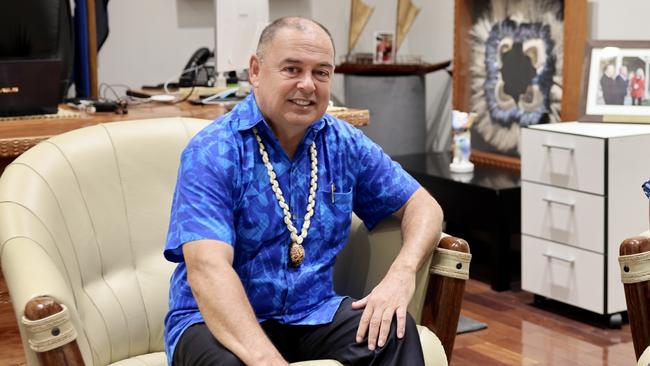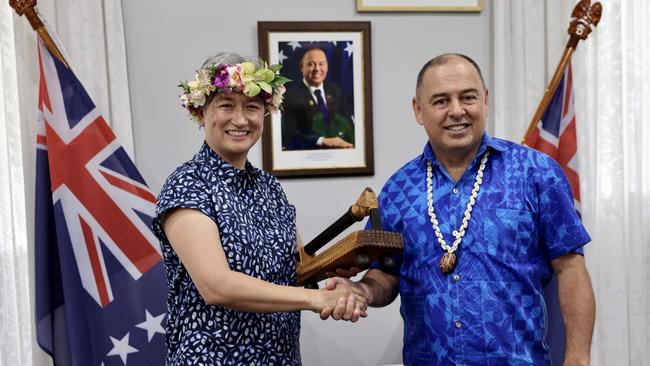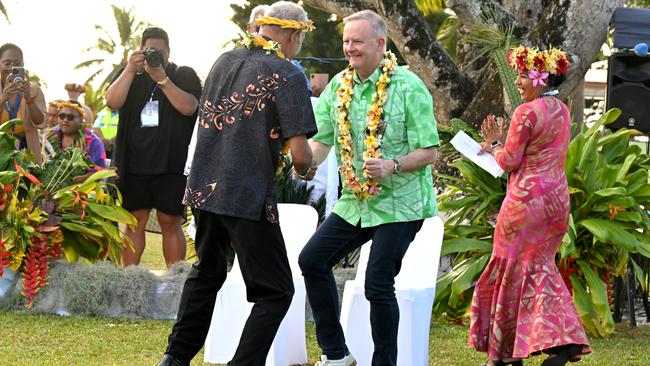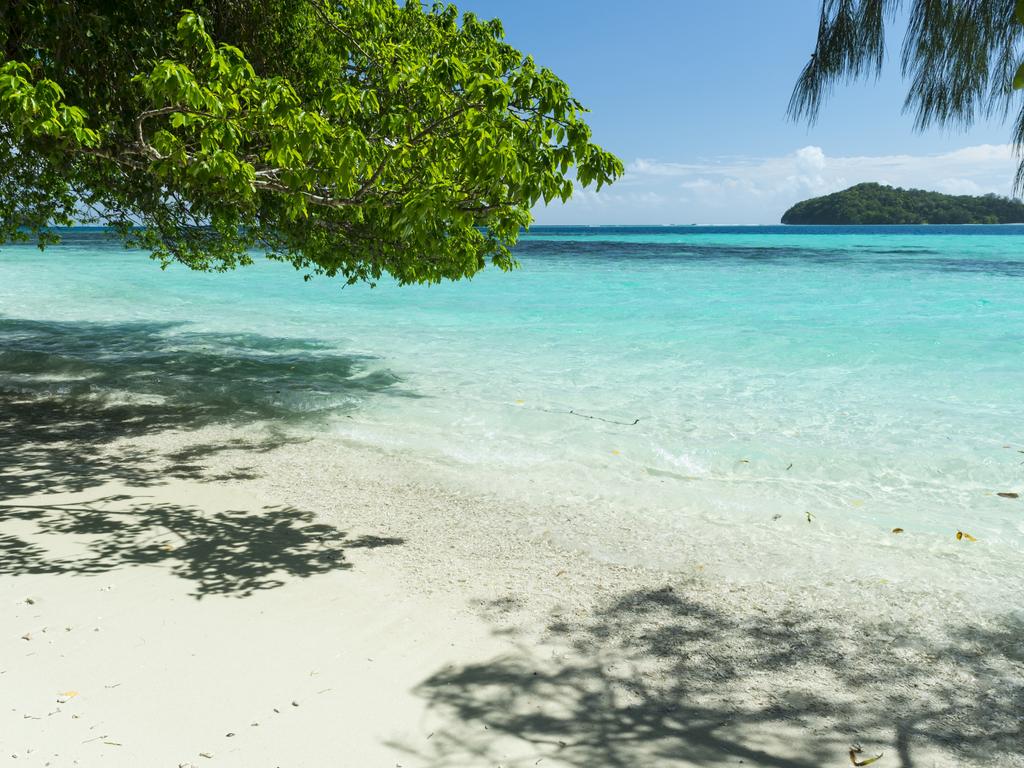‘Strategic failure’: Secret China deal raises new fears in the Pacific
The small but strategically important Cook Islands has blindsided its neighbours with the news its Prime Minister is heading to Beijing to sign a murky ‘strategic partnership’ with China.

The tiny nation of Cook Islands has delivered a significant blow to Australia’s efforts to counter China’s push into the Pacific, catching governments throughout the region by surprise with the announcement of a murky “strategic partnership” with Beijing.
New Zealand, which has a free association agreement with the self-governing nation, was left “blindsided” by the news that Cook Islands Prime Minister Mark Brown would travel to Beijing on Monday for a five-day state visit to sign the deal.
Under a veil of secrecy strongly condemned by New Zealand, the details of the “Comprehensive Strategic Partnership” have not been released, but reportedly include trade, fisheries, investment and deep sea mining.
The development comes on the heels of a security pact between China and Solomon Islands in which Chinese police have been deployed in the archipelago, and potentially paves the way for a Chinese military base on Australia’s doorstep.
Mr Brown has claimed the agreement he is about to sign with China does not concern security matters or allow policing arrangements like those in the Solomons.
The Australian government is cautiously waiting to see the detail of the agreement, with Foreign Minister Penny Wong releasing a brief statement noting Australia’s 2022 security co-operation agreement with Cook Islands and emphasising the Albanese government has been “working to rebuild our relationships in the Pacific”.

But New Zealand Foreign Minister Winston Peters accused Mr Brown of breaching a longstanding agreement under which New Zealand and Cook Islands must consult each other on issues of defence and security.
“This lack of consultation is a matter of significant concern to the New Zealand government,” Mr Peters said, adding the time for consultation “has now passed”.
Mr Peters, also Deputy Prime Minister, suggested China was trying to drive a wedge between his country and Cook Islands, telling TVNZ: “We’ve got past arrangements, constitutional arrangements, which require consultation with us and, dare I say, China knows that.”
Mr Brown is reported to have departed for China – via Auckland – without further consultation, following a phone call on Friday in which Mr Peters demanded he reveal the contents of the deal.
New Zealand could only verify the risk to its “core national interest” by seeing the proposed text of the agreement, Mr Peters said.
But defence expert Peter Jennings told The Australian the episode was a strategic failure by New Zealand.
“One has to ask: Why has New Zealand got to a point where it wasn’t aware of this agreement?” said Mr Jennings, a former deputy secretary for strategy in Australia’s Defence Department. “New Zealand had one job here and that was to keep the Cook Islands strongly under their watch, and they failed.
“Look at the absurdity of the idea of a strategic partnership between the Cook Islands and China. The only thing the Cook Islands can offer China is geographic positioning. The big picture is, China is still determined to build a position for itself in the Pacific where it can access port and airport facilities for its military.”

New Zealand’s free association agreement means Cook Islands, with a population of only 17,000, conducts its own affairs, but islanders are issued with New Zealand passports.
Mihai Sora, director of the Pacific Islands Program at the Lowy Institute, said even though the agreement appeared to be directed at economic development, strategic co-operation must also come into play.
“It’s impossible, and actually disingenuous, to ignore the broader context right now of the intense geopolitical competition between China and traditional security partners in the Pacific Islands region.
“So in this case, a closer security relationship between Cook Islands and China would be a concern for New Zealand, first and foremost, but also Australia and the United States, and it would be a further change to the security status quo in the Pacific.”
Mr Sora said there were other ways beyond policing that China could broaden its strategic access to the Pacific through Cook Islands, particularly through critical infrastructure such as undersea cables or access to government computer networks.
Mr Brown has hit back at New Zealand’s demand for oversight of the deal with China, saying his country needed to diversify from tourism, identifying its priorities as “developing renewable energy, managing our seabed minerals sector responsibly, and expanding trade opportunities”.
Mr Brown last week backed down on a proposal for Cook Islands to issue its own passports in the wake of a warning from Mr Peters that the islanders could be stripped of their New Zealand citizenship – and the hefty economic support they receive from Wellington.
“New Zealand has bared its teeth,” Mr Brown told the Cook Island News “We’ll look at other ways to be able to recognise our own nationality.”








To join the conversation, please log in. Don't have an account? Register
Join the conversation, you are commenting as Logout